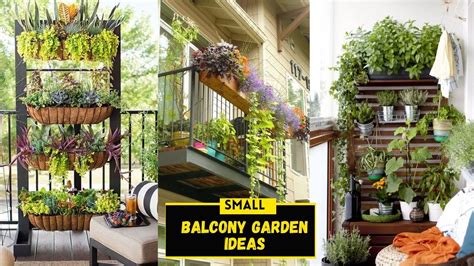Effective Balcony Gardening Hacks for Busy Urban Dwellers
In today’s fast-paced urban life, many individuals are drawn to balcony gardening as a way to reconnect with nature. However, time constraints and limited space pose challenges. Fortunately, by utilizing clever gardening hacks, you can cultivate a thriving urban garden on your balcony, even with a hectic schedule. This guide offers practical gardening tips tailored for busy people, covering everything from container gardening to sustainable plant care techniques.
Key Concepts of Balcony Gardening for Busy People
- Container Gardening: Growing plants in pots or containers, ideal for small spaces like balconies.
- Time-Saving Techniques: Using strategies that reduce the amount of hands-on time required for garden maintenance.
- Low-Maintenance Plants: Selecting plants that require minimal care, perfect for those with limited time.
Historical Context of Urban Gardening
Urban gardening has long been a solution for space-challenged individuals in cities. Historically, urban dwellers used small plots or window boxes to grow their own food. This practice became popular during wartime efforts when victory gardens were encouraged to supplement food supplies. In modern times, balcony and container gardening have evolved into a trend driven by the desire for green living and sustainability.
Current State Analysis of Balcony Gardening
In recent years, balcony gardening has grown in popularity due to the rise of apartment living and the green movement. Many people embrace small space gardening as a way to enhance their living environment and grow their own herbs, vegetables, and ornamental plants. However, the major challenge remains how to maintain these gardens with limited time. Enter time-saving hacks and strategies tailored to the needs of busy urbanites.
Practical Applications for Busy Balcony Gardeners
To maintain a flourishing balcony garden without dedicating hours to care, here are several gardening tips:
- Self-Watering Containers: Invest in self-watering planters that reduce the need for frequent watering.
- Drip Irrigation Systems: Install a drip irrigation system with a timer for consistent, automated watering.
- Soil Moisture Monitoring: Use moisture sensors to monitor when plants need water, eliminating guesswork.
- Mulching: Apply organic mulch to containers to conserve moisture and reduce watering frequency.
- Vertical Gardening: Maximize space by using vertical planters and hanging baskets for herbs and flowers.
- Plant Choice: Choose drought-tolerant or slow-growing plants that require less frequent maintenance.
Case Studies: Time-Saving Balcony Garden Solutions
| Case | Time-Saving Hack | Results |
|---|---|---|
| Apartment Balcony in NYC | Drip Irrigation System | Reduced watering time by 80%, healthier plants |
| Small Balcony in London | Vertical Gardening with Herbs | Increased planting space by 50%, low maintenance |
| Urban Balcony in Tokyo | Self-Watering Containers | Improved plant survival rates, less daily care needed |
Stakeholder Analysis: Urban Gardeners and Their Needs
Busy urban gardeners fall into several categories, each with distinct needs:
- Professionals: People with demanding jobs who need low-maintenance solutions.
- Families: Parents who want to engage children in gardening but lack the time for constant upkeep.
- Sustainability Enthusiasts: Individuals looking for eco-friendly, DIY gardening hacks to reduce environmental impact.
Implementation Guidelines for Balcony Gardens
- Choose the right containers and ensure they have proper drainage to avoid root rot.
- Set up automated watering systems or use self-watering pots.
- Use vertical planters to maximize space, and mulch to retain moisture.
- Select low-maintenance plants like succulents, herbs, or perennial flowers.
- Place your garden in areas with appropriate light for the chosen plants, using grow lights if necessary.
Ethical Considerations of Urban Balcony Gardening
Balcony gardening supports environmental sustainability, reduces urban carbon footprints, and promotes self-sufficiency. However, careful attention should be paid to ensuring that materials like plastics used for containers are biodegradable or recycled. Furthermore, urban gardeners should be mindful of water usage, especially in areas prone to drought.
Limitations and Future Research
While balcony gardening offers many benefits, there are limitations to be addressed:
- Restricted space: Balconies are often small, limiting the range and number of plants that can be grown.
- Light limitations: Many urban balconies receive limited sunlight, which can restrict plant choice.
- Weight limitations: Balconies may have weight restrictions that limit the use of heavy planters or water-laden containers.
Future research should focus on developing lightweight, space-efficient growing systems, as well as automated care solutions that use renewable energy. Additionally, exploring vertical gardening innovations and smart irrigation systems could significantly improve the ease of urban gardening for time-constrained individuals.
Expert Commentary on Balcony Gardening
Experts in urban gardening agree that the key to success for balcony gardeners lies in maximizing the efficiency of space, resources, and time. By integrating smart technologies such as self-watering systems and utilizing vertical spaces, even the busiest individuals can maintain a thriving balcony garden. Low-maintenance plants and automated care systems further simplify the process, allowing for green living without sacrificing significant time. Additionally, sustainable practices like using recycled materials for planters and conserving water make urban gardening an eco-friendly solution to the growing interest in self-sufficiency and nature connection in urban environments.


